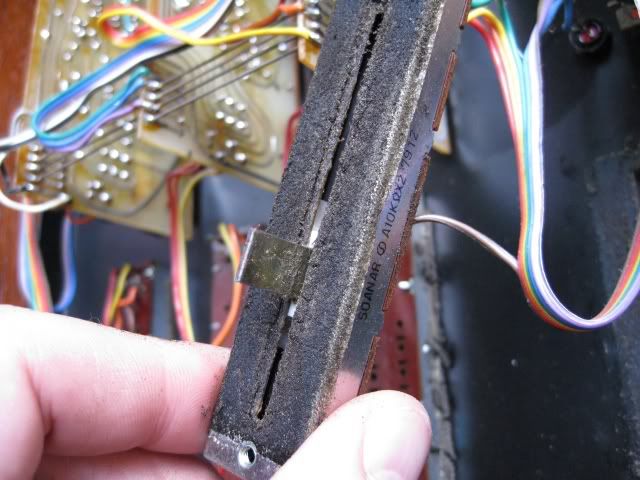slowmotion
New member
So I have an old desk. It's a live desk, it's analogue, it's not transformer input or anything, just opamps, simple simple. It's from 1978-80, made by Jands in Australia. A pub rock desk.
The thing is, it's a bit noisy. Everything works perfectly (well...). I know live desks will always be noisier than a "proper" recording desk, that's not my issue. It's extra noisy, to the point where I wouldn't use it live either.
I've replaced the power caps, but not all the caps (yet). I figured the old power caps would be the biggest cause of noise, but after swapping them I only noticed a slight drop in noise - and I mean tiny, I couldn't hear it but I could measure it.
None of the caps are visibly leaking (I know that's not an indicator of much) and I will eventually swap them all out, but couldn't help thinking about all the other parts. Particularly, all the pots and the sliders, figuring at least a little beer has gotten into them at some stage over the last 30 years.
So - if I am NOT turning or moving a pot or slider - can it still be a cause of noise? I am quite familiar with scratchiness and noise when moving them, but if they are still, can they still be a problem? I can't see how, but I ask.
Am I better off looking at things like the opamps or transistors? Can they "go" bad like caps can?
I *know* I could get a much quieter, much more useful, smaller and better desk for a few hundred bucks. But I want to use it to learn this kind of thing on. I can solder and I understand the risks of poking around in power sections etc etc.
Anyone?
The thing is, it's a bit noisy. Everything works perfectly (well...). I know live desks will always be noisier than a "proper" recording desk, that's not my issue. It's extra noisy, to the point where I wouldn't use it live either.
I've replaced the power caps, but not all the caps (yet). I figured the old power caps would be the biggest cause of noise, but after swapping them I only noticed a slight drop in noise - and I mean tiny, I couldn't hear it but I could measure it.
None of the caps are visibly leaking (I know that's not an indicator of much) and I will eventually swap them all out, but couldn't help thinking about all the other parts. Particularly, all the pots and the sliders, figuring at least a little beer has gotten into them at some stage over the last 30 years.
So - if I am NOT turning or moving a pot or slider - can it still be a cause of noise? I am quite familiar with scratchiness and noise when moving them, but if they are still, can they still be a problem? I can't see how, but I ask.
Am I better off looking at things like the opamps or transistors? Can they "go" bad like caps can?
I *know* I could get a much quieter, much more useful, smaller and better desk for a few hundred bucks. But I want to use it to learn this kind of thing on. I can solder and I understand the risks of poking around in power sections etc etc.
Anyone?



